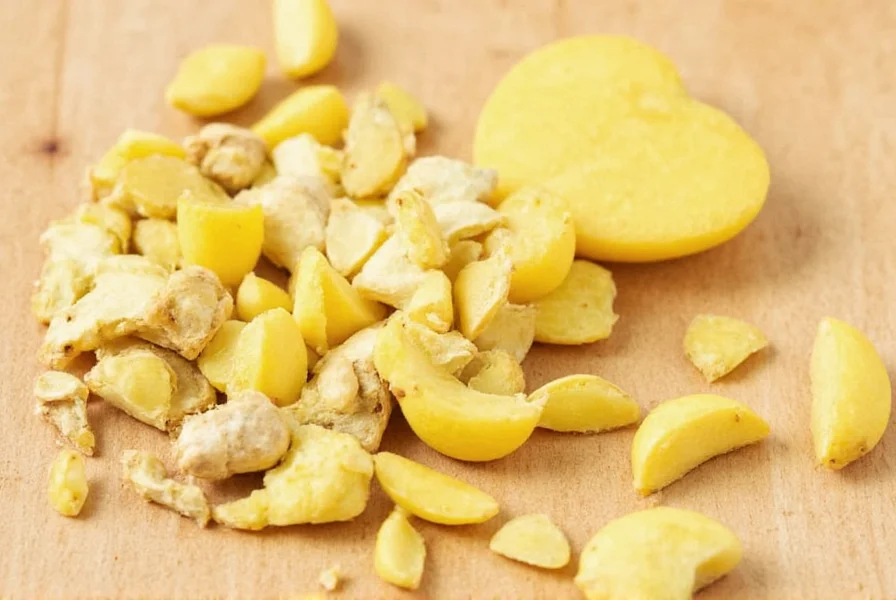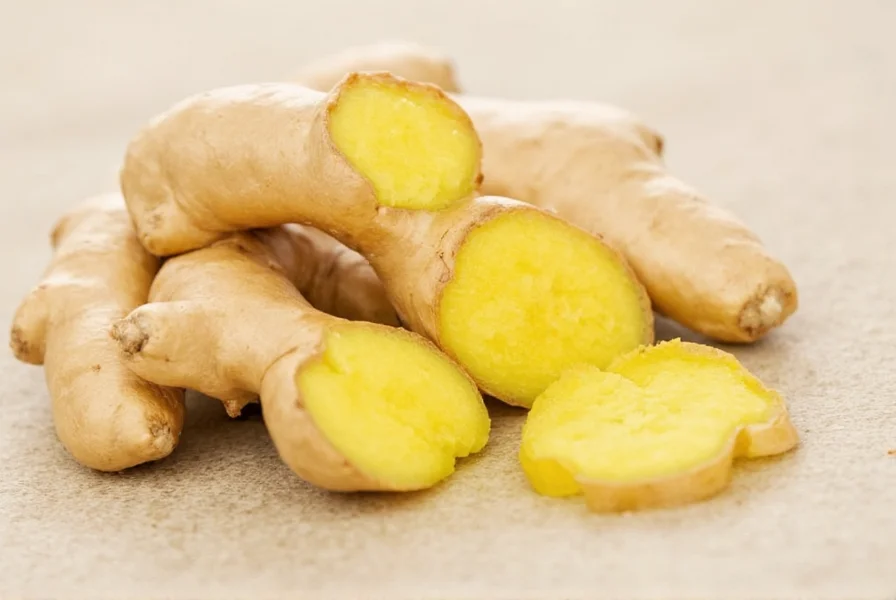Ginger has been used for centuries in traditional medicine systems worldwide to address digestive complaints. Modern research is now providing evidence to support many of these traditional uses, particularly regarding stomach acid regulation and digestive health.
Understanding Stomach Acid and Digestive Health
Stomach acid, primarily hydrochloric acid, plays a crucial role in digestion by breaking down food and activating digestive enzymes. However, when acid flows back into the esophagus (acid reflux), it causes uncomfortable symptoms like heartburn. Gastroesophageal reflux disease (GERD) occurs when this happens frequently.
Many people search for natural alternatives to conventional medications for managing stomach acid issues. Ginger frequently emerges as a potential remedy in these searches, prompting the question: is ginger good for stomach acid concerns?
Scientific Evidence on Ginger and Stomach Acid
Multiple studies have investigated ginger's effects on digestive processes. A 2007 study published in Molecular Research and Food Nutrition found that gingerols (active compounds in ginger) can help accelerate gastric emptying, which may reduce the likelihood of acid reflux.
Research in the Journal of Gastroenterology and Hepatology suggests ginger may help reduce inflammation in the digestive tract and possess antioxidant properties that protect the stomach lining. This makes ginger for heartburn relief a potentially valuable natural approach for some individuals.
| Study | Findings on Ginger and Digestion | Limitations |
|---|---|---|
| 2008 study in European Journal of Gastroenterology & Hepatology | Ginger accelerated gastric emptying by 25% compared to placebo | Small sample size (n=13) |
| 2011 review in Food Chemistry | Ginger compounds showed anti-ulcer properties in animal studies | Primarily preclinical research |
| 2019 study in BMC Complementary Medicine and Therapies | Ginger supplementation reduced GERD symptoms in 75% of participants | Short duration (30 days) |
How Ginger May Help with Acid Reflux
Ginger appears to help with stomach acid issues through several mechanisms:
- Accelerated gastric emptying - Ginger may help food move more quickly from the stomach to the small intestine, reducing the chance of acid backing up
- Anti-inflammatory effects - Ginger's compounds may reduce inflammation in the digestive tract
- Antioxidant properties - May protect the stomach lining from damage
- LES pressure modulation - Some evidence suggests ginger might help maintain lower esophageal sphincter tone
For those wondering does ginger help with acid reflux, the answer appears to be yes for many people, but not universally. Individual responses to ginger can vary significantly based on the underlying cause of digestive issues.

Using Ginger for Stomach Acid Issues
If you're considering ginger as a natural remedy for stomach acid problems, here are evidence-based recommendations:
Effective Forms of Ginger
- Fresh ginger tea - Steep 1-2 inches of fresh ginger in hot water for 10 minutes
- Ginger supplements - Look for standardized extracts (consult your healthcare provider first)
- Cooking with ginger - Incorporate into meals rather than consuming large amounts at once
Dosage Guidelines
Most studies showing benefits used 1-1.5 grams of ginger daily. Start with smaller amounts to assess tolerance:
- Mild digestive support: 250-500mg before meals
- Acute symptoms: 1 cup of strong ginger tea
- Maximum daily: Do not exceed 4 grams without medical supervision
Potential Concerns and Limitations
While many people find ginger tea for acid reflux helpful, it's not appropriate for everyone. Some research indicates ginger might actually increase stomach acid production in certain individuals, potentially worsening symptoms.
A 2012 study in Journal of Ethnopharmacology noted that while ginger helped most participants with functional dyspepsia, a small subset experienced worsened symptoms. This highlights why understanding your individual response to ginger is crucial when managing stomach acid issues.
People with the following conditions should exercise caution:
- Severe GERD with esophageal damage
- Gallstone disease
- Bleeding disorders
- Taking blood thinners
- Pregnancy (consult physician)

When to Consult a Healthcare Professional
While natural remedies like ginger can be helpful for mild digestive issues, certain symptoms require medical attention:
- Frequent heartburn (more than twice weekly)
- Difficulty swallowing
- Unintentional weight loss
- Chest pain
- Vomiting blood or black stools
These could indicate more serious conditions that require professional diagnosis and treatment. Never use ginger or other natural remedies as a substitute for medical care when serious symptoms are present.
Complementary Approaches to Managing Stomach Acid
For those exploring natural remedies for stomach acid, ginger works best as part of a comprehensive approach:
- Maintain a healthy weight
- Eat smaller, more frequent meals
- Avoid lying down immediately after eating
- Elevate the head of your bed
- Identify and avoid personal trigger foods
- Manage stress through meditation or yoga
Conclusion: Is Ginger Good for Stomach Acid?
The evidence suggests ginger can be beneficial for many people experiencing mild stomach acid issues, primarily by improving gastric motility and reducing inflammation. However, individual responses vary, and ginger may not be appropriate for everyone with acid-related digestive problems.
When considering is ginger safe for GERD patients, the answer depends on the severity of the condition and individual tolerance. Starting with small amounts of ginger and monitoring your body's response is the safest approach. For persistent or severe symptoms, always consult with a healthcare provider to determine the most appropriate treatment plan for your specific condition.
Frequently Asked Questions
Does ginger increase or decrease stomach acid?
Ginger's effect on stomach acid varies by individual. Research suggests it may help regulate stomach acid production rather than simply increasing or decreasing it. For many people, ginger improves gastric emptying which reduces acid reflux symptoms, but some individuals with severe GERD might experience increased acid production.
How much ginger should I take for acid reflux?
For acid reflux relief, studies suggest 250-500mg of ginger before meals or 1-1.5 grams daily in divided doses. Start with smaller amounts to assess tolerance. Do not exceed 4 grams daily without medical supervision. Fresh ginger tea (1-2 inches of root steeped in hot water) is a gentle way to begin.
Can I drink ginger tea every day for stomach issues?
Yes, most people can safely drink ginger tea daily for stomach issues, but moderation is key. Limit to 1-2 cups per day initially. Some people may experience mild side effects like heartburn with excessive consumption. If you have gallstones or are taking blood thinners, consult your doctor before regular ginger tea consumption.
What are the side effects of using ginger for acid reflux?
Possible side effects of ginger for acid reflux include mild heartburn (in sensitive individuals), mouth irritation, and digestive discomfort when consumed in excess. Ginger may interact with blood thinners and diabetes medications. Those with gallstones should use caution as ginger may increase bile production. Most side effects occur with excessive consumption beyond recommended amounts.
How long does it take for ginger to work for acid reflux?
The effects of ginger for acid reflux can vary. Some people experience relief within 30-60 minutes of consuming ginger tea, while others may need consistent use for several days to notice improvement. Research studies showing benefits typically measured effects after 2-4 weeks of regular use. Individual responses depend on the underlying cause of acid reflux and overall digestive health.











 浙公网安备
33010002000092号
浙公网安备
33010002000092号 浙B2-20120091-4
浙B2-20120091-4